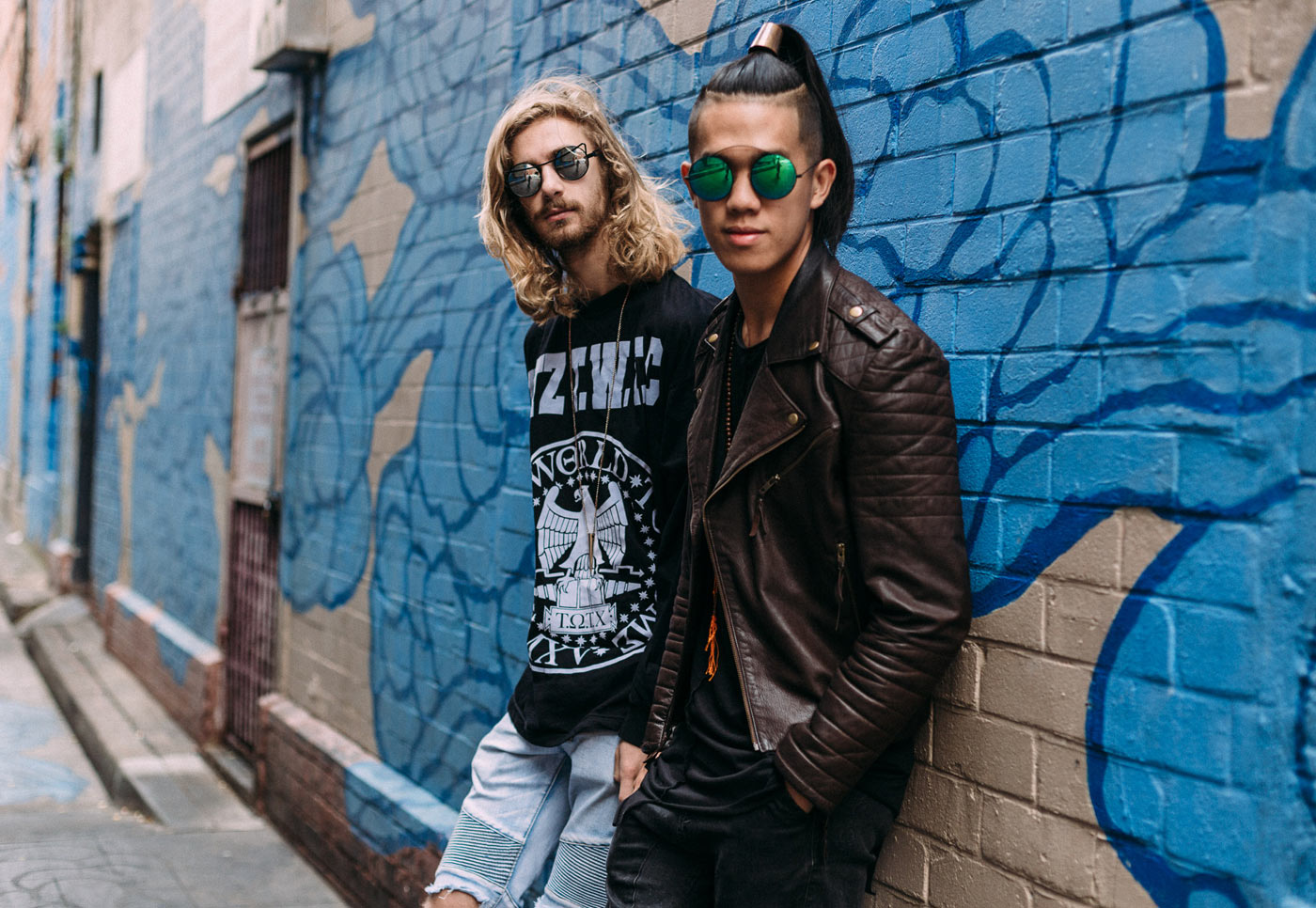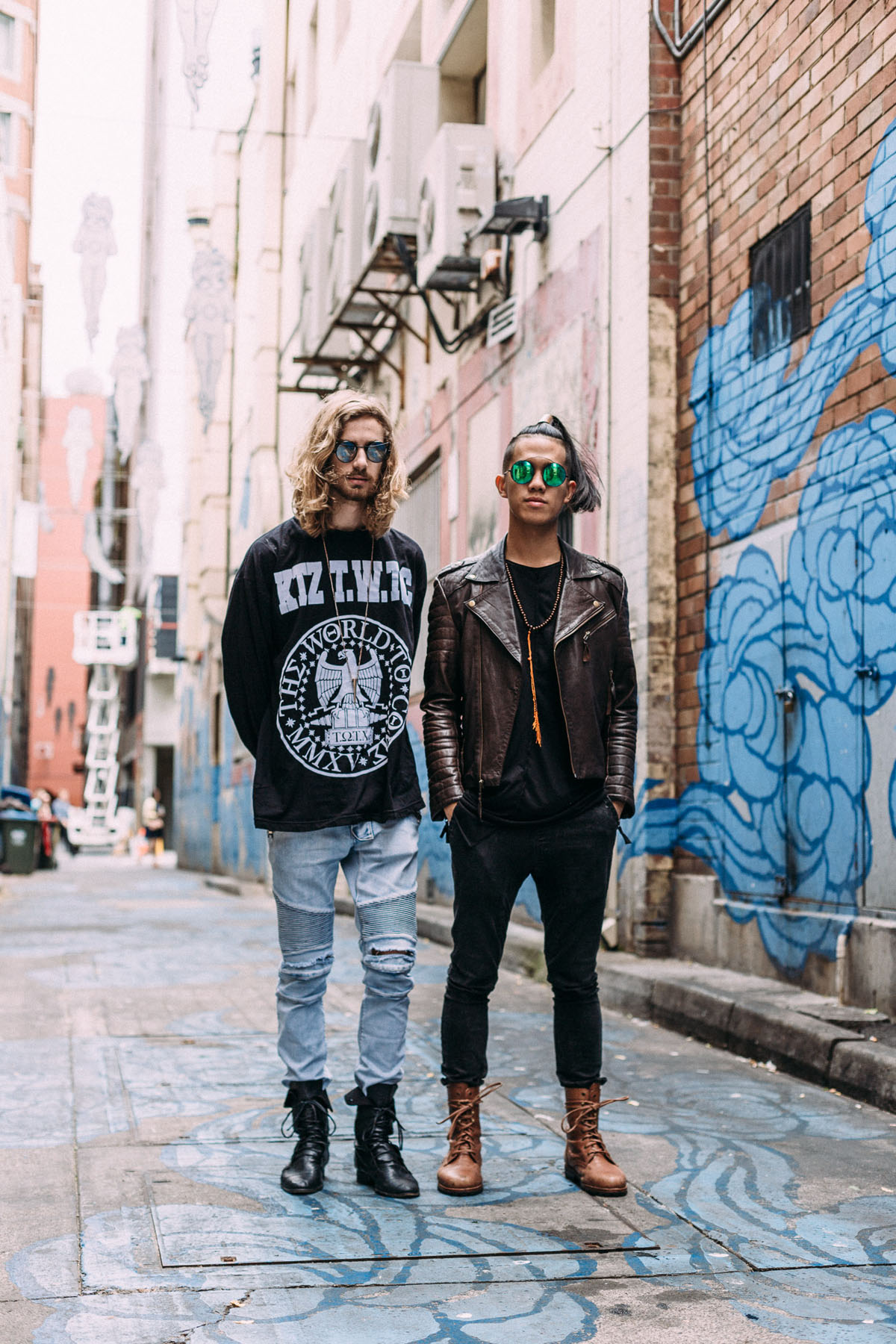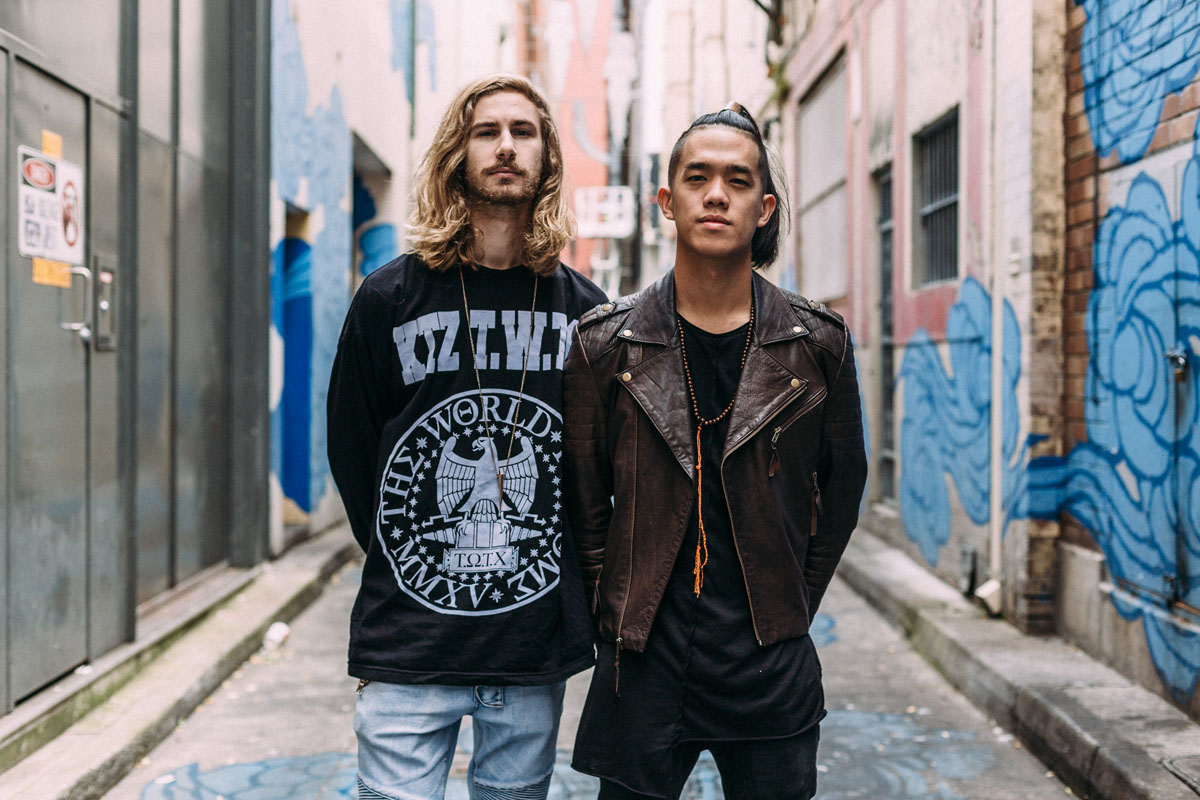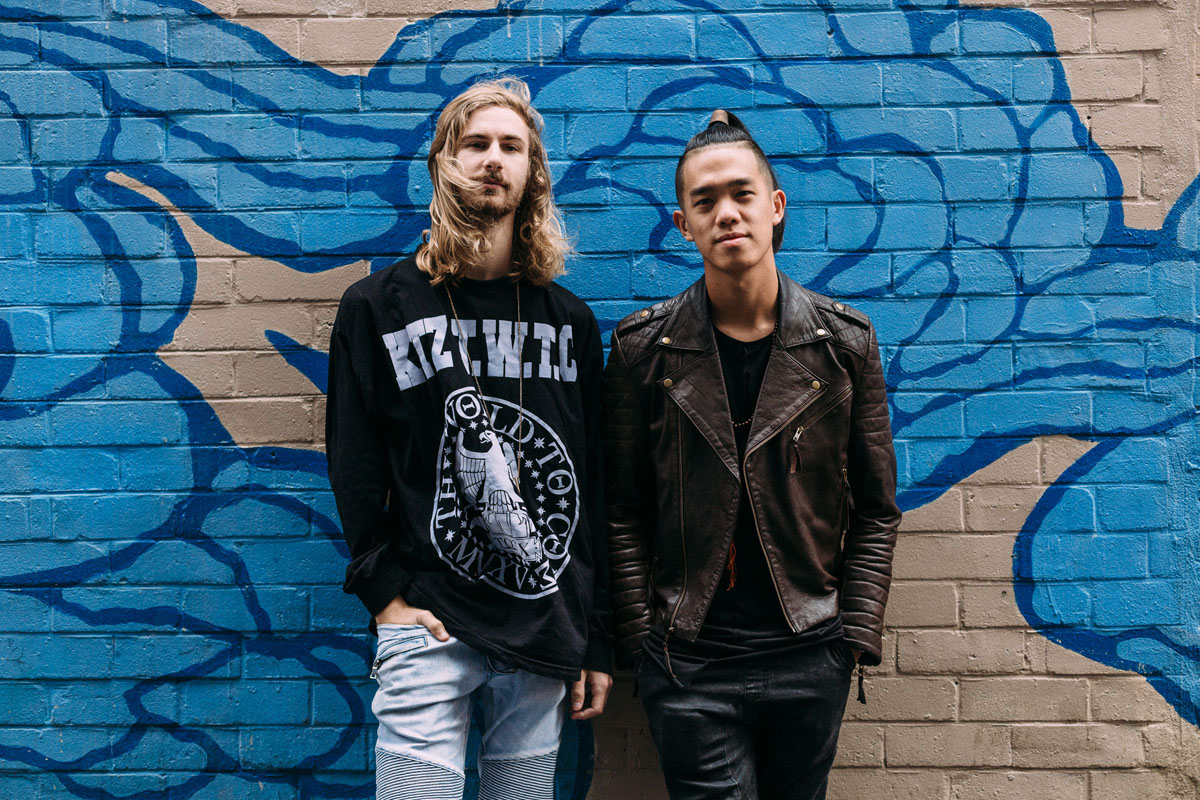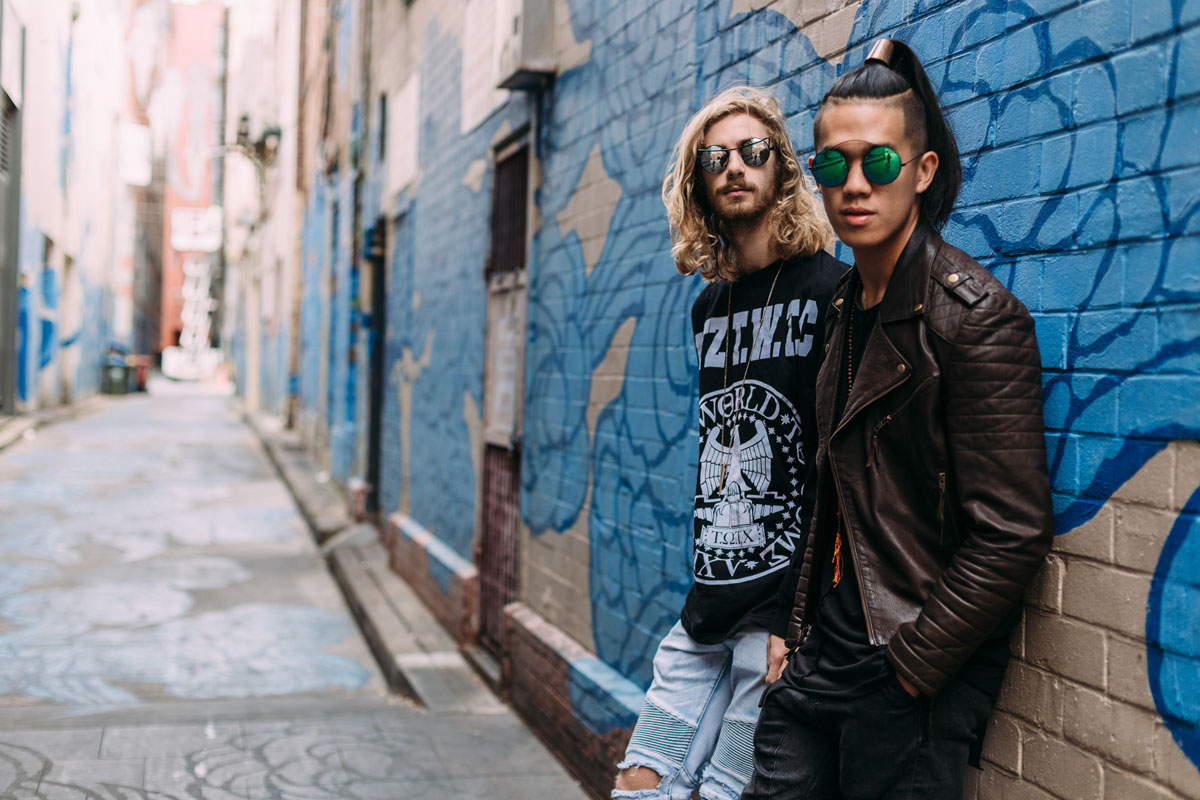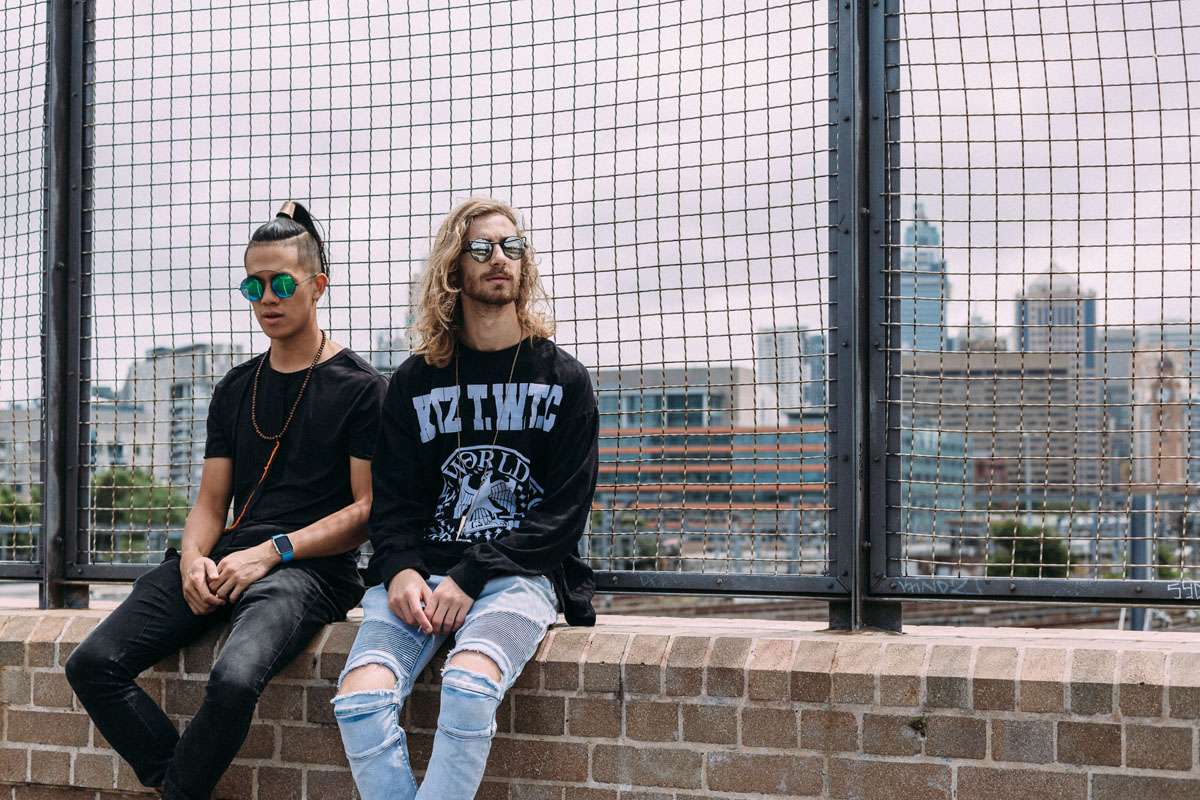Tucked in the tight-knit music scene in Perth, AU is a sleepy duo by the name of Slumberjack. While their Soundcloud description blatantly states their primary activity is sleeping the day away their sound is far from a lullaby. They have releases and remixes ranging from house to trap while keeping a heavy hand on their bass. As oppose to the many artists who stick to one genre and dabble in others, Morgan Then and Fletcher Ehlers keep their style fresh by producing music that stays away from the standard.
Photographed by: Liam Burnett-Blue
Interviewed by: Camden Gaultney
Introduction by: Mel Truong
Tell us about your upbringings and how they shaped the people/musicians you are now. How + when did you two meet?
F: I grew up earlier in Vietnam and later in Australia and my parents were both very into electronic music, so I was exposed to it from quite a young age (I used to think it was super uncool). As I got older I got more and more interested in it and starting making my own ‘songs’ when I was about 10 or 11. I’ve just kept going since then.
M: I grew up in Malaysia and moved to Australia a couple years ago. I’ve always wanted to be a musician one way or another ever since I was a kid, so I picked up the piano and later pursued many different instruments. When I had to leave all these instruments behind in Malaysia, my laptop became the only way I could create music. Fletch and I met at the Perth Dance Music Awards and decided to jump in the studio a couple months later out of boredom. We never expected that little studio session was gonna have such an impact on our lives.
Who do you consider your role models in this career decision?
F: With the power of the internet now we really get to see into the lives of all the people who we look up to. When I was 16 or so I remember discovering a producer through Soundcloud who was the same age as me which blew my mind because up until then I thought you had to be much older to “do well”. After that, I felt like a lot of barriers fell away which was a big step for me.
M: My role model is Steve Jobs; he never cared what people thought of him or what he did. This was important for me because growing up in Malaysia wasn’t particularly a nurturing environment for the “budding producer”. It was always the banker or doctor or engineer that got the attention. Telling people you were going to be a music producer resulted in confusion and sometimes being patronized.
Talk us through your path as a musician from starting out until now (beginning, career highlights, etc.)
M: I distinctively remember looking over to a boy (we were about 12) who was playing the piano and I thought to myself that I needed to play it too. There wasn’t any particular reason, but I knew I wanted to be a musician at that moment. I got my parents to enrol me in piano classes and then furthered my studies with World/ethnic music. I played in a world music band as a percussionist for about 2 years and we opened the Borneon Rainforest World Music Festival twice, which was pretty amazing since all 13 of us were very young. That part of my life taught me a lot about the different sounds world music has to offer that often go unnoticed (God knows why). Moving to Australia was pretty big for me. I had to leave all my instruments behind (particularly my piano) and it was heartbreaking. And then I saw a Stereosonic poster in the airport, which piqued my interest. I remember thinking to myself “who wants to watch a guy behind a table on stage pressing buttons on spaceship-esque dashboards anyway?” and then the rest was history LOL.
“I guess there is a constant excitement for what the future holds which keeps us going – there’s always something big around the corner and like little kids we’re always dreaming up grand schemes.”
F: Deciding to start SLUMBERJACK as a new combined project was one of the best decisions Morgan and I ever made. I had been working on my own stuff previously and it had seriously stagnated so this new project gave me a lot of new energy and was a much needed switch-up. It’s very difficult for us to pinpoint career highlights because every little step has been important and served a purpose in it’s own right. There’s no going past the Wonderland Warehouse Tour though, that was such an epic run of shows with an amazing crew.
Tell us about your experience at Stereosonic 2015!
Stereosonic was one of the best weeks we’ve had this year. It was great to see so much Aussie talent on the lineup as well as some of our favourites from across the way. There was definitely a real family vibe by the end of the tour amongst all the artists which is one of the great aspects of doing these touring festivals.
We were so thankful that people came down early for our set in each city but we were still super nervous before every show!
What’s your creative process? Does one of you usually take the lead or is it truly a collaborative process?
We usually like to start tracks separately as we need to be by ourselves to work from a blank canvas. Once one of us has a solid idea we’ll bring it to the table and the other then puts their spin on it. After a few times back and forth we’ll come together to finish the track and make all those difficult final decisions. This last part can be pretty sporadic in how long it takes; sometimes we can polish off a track in a day or two and other times it takes over a year.
What keeps you motivated to keep going in this industry?
F: The music! I’m not sure we even need ‘motivation’ to keep going, we’ll still always have that desire to play out the ideas that pop into our heads. But I guess there is a constant excitement for what the future holds which keeps us going – there’s always something big around the corner and like little kids we’re always dreaming up grand schemes.
Do you think there are any notable differences between the US and Australian audiences?
At the moment, we can’t really comment on that since we haven’t been to the US yet (we will in early 2016). But when we do we’ll definitely get back to you! Although, with platforms like Facebook, Soundcloud and Spotify, the world is a lot smaller now and there doesn’t seem to be major differences in musical tastes and preference. It’s definitely a good sign that everyone everywhere is more open to new music than ever before.
What’s something you haven’t done yet that you want to do?
F: Totally not related to music but I’d have to say skydiving is at the top of my list.
M: I would love to complete the Kilimanjaro challenge one day.

